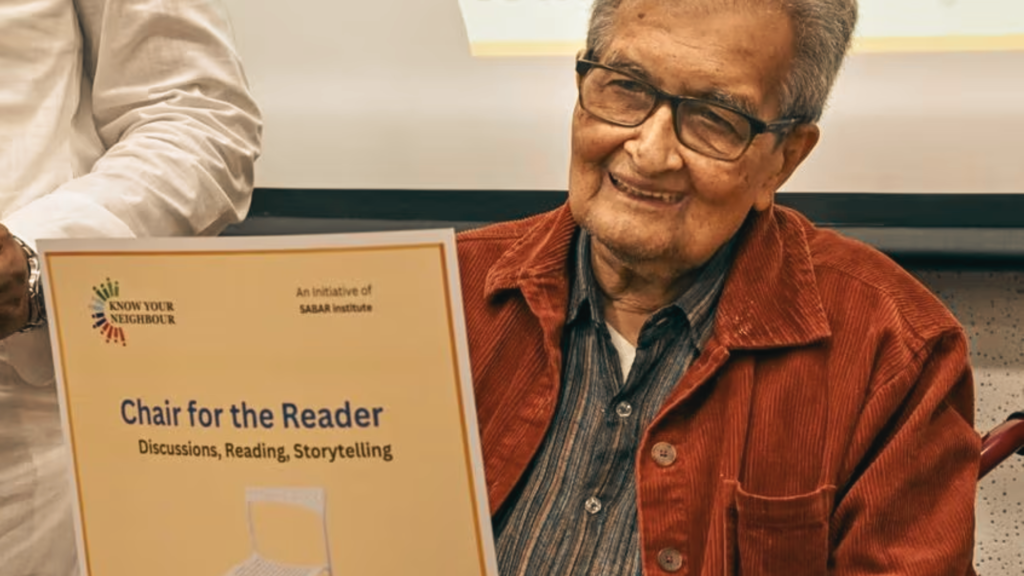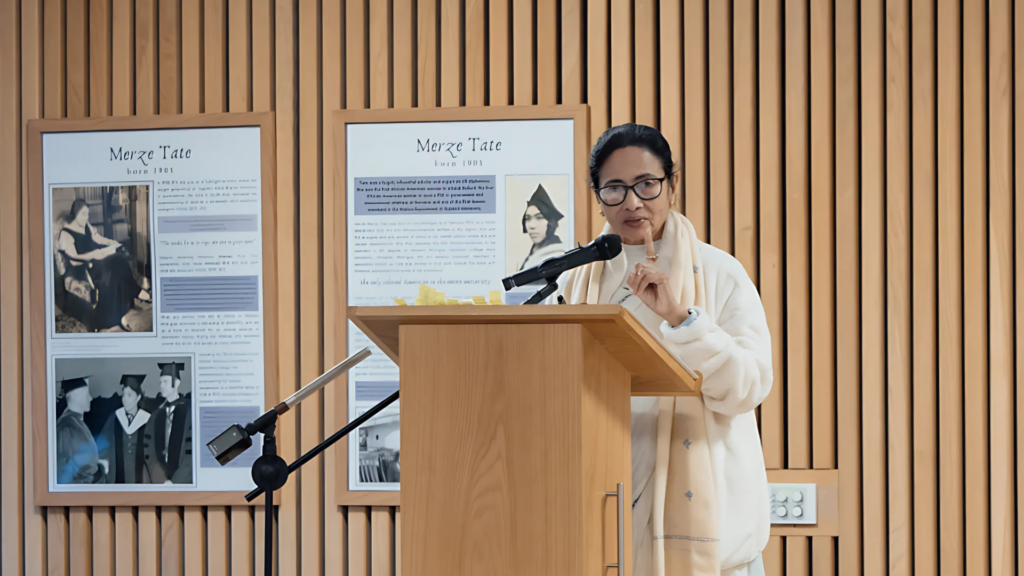Amartya Sen launches initiative on promoting communal harmony through reading
July 15, 2024 2 min read

Nobel laureate Amartya Sen launched an initiative in Kolkata last Saturday (July 13), named ‘Chair for the Reader’, aimed at promoting communal harmony in Bengal through literature, by encouraging reading among the youth, and through it, steering them away from the misinformation often found on social media.
The initiative aims to establish reading spaces throughout the state where people, especially the young, can engage with books and participate in literary discussions.
The launch ceremony at the Alipore Museum was helmed Professor Sen. Present, among others, were city mayor Firhad Hakim, Jayanta Sengupta, former director of Victoria Memorial Hall and Nandana Dev Sen, Amartya Sen’s daughter, who is an acclaimed actor, children’s author and child rights activist.
The first Chair for the Reader centre has come up in the Mominpur neighborhood, in an 800 sq ft space, furnished with 40 chairs, three tables, two bookshelves and several bins, funded through crowdfunding.
Speaking at the launch ceremony, Sen said, “There is a concerted effort to turn India into a one-religion country. This effort needs to be resisted. … Children in school, who have not received wrong education, do not harbour such discrimination. As they grow up, these things start creeping in. What is most important is ‘yukta sadhana’, the working together of Hindus and Muslims. It can be religious but can also be political, socio-economic, education or the health system.
“Many people do not know how strong these collaborations are. Take Ali Akbar Khan on one side and Ravi Shankar on the other. The same spirit is there in literature. We should take pride in that.”
He also spoke about Shah Jahan’s son, Dara Shikoh. “The introduction of European scholars to Hindu scriptures, in particular the Upanishads, was to a great extent based on the Persian translation of the Upanishads done by Dara Shikoh. He was not a great Sanskrit scholar himself but he did work hard with the help of Hindu pundits and priests to translate the Upanishads into Persian. Scholars like Max Muller translated the Upanishads from the Persion version.”
The ‘Chair for the Reader’programme is managed by Know Your Neighbour (KYN), an organsation known for its heritage walks that highlight the city’s cultural diversity. Now, KYN plans to use literature to foster connections between communities.
“Our programme aims to provide opportunities for the youth of Mominpur and the larger Khidirpur area, which lacks reading spaces and bookshops. However, we welcome anyone interested in literary discussions. Our ambitious goal is to open similar spaces across West Bengal,” Sabir Ahamed, convenor of KYN, explained at the launch.
“With Chair for the Reader, we’re creating a curated reading space—not a traditional library, but a place to introduce important books to the youth. There’s a noticeable absence of minority representation in mainstream literature,” he explained.
“By using literary tools—reading, discussions, and idea exchanges—we hope to address overlooked and misunderstood issues. We also plan to host storytelling sessions for children and build a digital repository for future researchers,” Ahamed added.





































